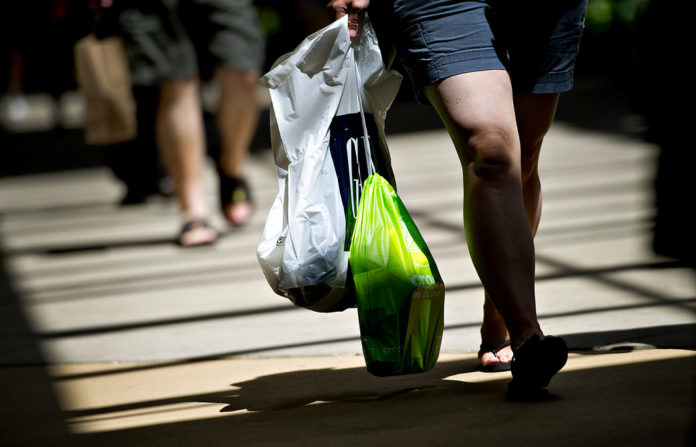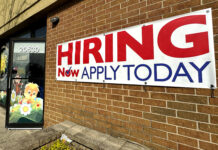
WASHINGTON – Consumer confidence in the U.S. rose in February to a three-month high, which may help to preserve recent gains in household spending.
The Thomson Reuters/University of Michigan preliminary index of consumer sentiment climbed to 76.3 this month from 73.8 in January. The gauge was projected to rise to 74.8, according to the median forecast in a Bloomberg survey.
Increased property values, a strengthening job market and stocks at five-year highs are providing a boost to Americans’ balance sheets. A pickup in wealth would help make up for recent gains in gasoline prices and the hit to take-home pay from a two percentage-point increase in the payroll tax.
“We saw a meaningful improvement in overall financial market conditions and home prices, and those are the kind of drivers now for consumer confidence,” said Millan Mulraine, director U.S. rates research at TD Securities USA LLC in New York, who projected a sentiment index of 76. “As attitudes continue to improve, we are likely to see that possibly be reflected in improved spending.”
Stocks were little changed after the figures, with the Standard & Poor’s 500 Index falling less than 0.1 percent to 1,521.13 at 10:41 a.m. in New York.
Other data today showed manufacturing is on the mend. The Federal Reserve Bank of New York said its general economic index climbed to 10 in February, the highest since May, from minus 7.8 in the prior month. Readings greater than zero signal expansion in New York, northern New Jersey and southern Connecticut.
Industrial production
The report showed factories regained their footing after taking a breather in January. Industrial production at factories, mines and utilities fell 0.1 percent in January after a 0.4 percent increase, the Fed said today. Manufacturing, which makes up 75 percent of total production, dropped 0.4 percent last month after the biggest two-month advance since 1984.
Estimates of the 65 economists surveyed by Bloomberg ranged from 70 to 78. The index averaged 64.2 during the last recession, and 89 in the five years before the 18-month economic slump that ended in June 2009.
The report is in line with Bloomberg’s weekly Consumer Comfort Index, which climbed to minus 35.9 in the period ended Feb. 10 from minus 36.3 the prior week.
The Michigan survey’s index of current conditions, which assesses how Americans perceive their financial situation and whether they think it is a good time to buy expensive items like cars, rose to 88 from a six-month low of 85 in January.
The index of consumer expectations for six months from now, which more closely projects the direction of consumer spending, advanced to 68.7 from 66.6 last month.
Consumers in today’s preliminary confidence report said they expect an inflation rate of 3.3 percent over the next 12 months, the same as in January. Over the next five years, Americans expected a 3 percent rate of inflation, compared with 2.9 percent in the previous month.
Americans are benefiting from rising house values as low mortgage rates drive the recovery in housing. Prices for single- family homes climbed in about 88 percent of U.S. cities in the fourth quarter, the National Association of Realtors said in a report earlier this week.
Stocks are also making households wealthier. The S&P 500 climbed 5 percent in January, its biggest increase for the month since 1997. The benchmark has extended the gain this month.
Improvements in the labor market are another reason for optimism. The economy added 157,000 jobs in January after a revised 196,000 gain in December and a 247,000 surge in November. Firings are starting to wane as well. Initial jobless claims decreased by 27,000 last week, the most in a month, Labor Department data showed.
Payroll tax
At the same time, Americans face some headwinds that threaten to restrain consumer spending. Congress and President Barack Obama allowed the payroll tax to return to its 2010 level of 6.2 percent from 4.2 percent. An American who earns $50,000 is taking home about $83 less a month because of the levy.
Trips to the gas station are becoming more expensive as well. The average price of a gallon of gasoline has climbed about 42 cents since last year’s low of $3.22, reached on Dec. 19, according to AAA, the nation’s largest motoring organization.
“In the United States we see some signs of improvement, Muhtar Kent, chief executive officer at Coca Cola Co., said on a Feb. 12 call with analysts. “We need to wait and evaluate the impact of the payroll taxes as well as the higher gasoline prices. It’s too early to say, but it’s a recovery that is at best lukewarm, but we feel that it could get better.”












